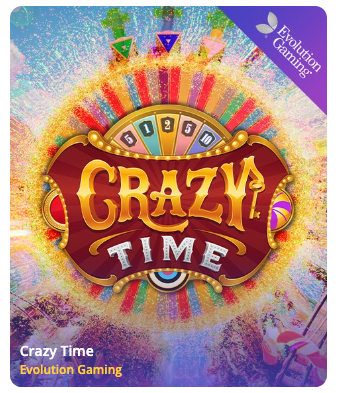Casino Days
Casino Days is an online casino operator founded in 2020 that offers a very impressive website platform for players worldwide. The casino features a wide range of options to choose from, ranging from beloved live casino and slot titles such as Crazy Time, Book of Dead, Lightning Roulette, Legacy of Dead, and MONOPOLY Live to innovative Crash Games like Aviator, Plinko, and Mines. With games from leading game providers such as Evolution, Play’n GO, and Spribe, stringent security measures, excellent casino bonuses, and a dedicated Android mobile app, this casino is one of the best to join and play in India.
Here are the facts about Casino Days and how it operates.
Casino Days – Overview
| Casino Name | Casino Days |
|---|---|
| Owned by | White Star B.V |
| Licensed | Yes |
| Licence Issued by | Curacao Gaming Control Board (GCB) |
| Year founded | 2020 |
| Number of games available | 5,000 + |
| Compatibility | Desktop/Laptop/Tablet/Mobile |
| Mobile app availability | Dedicated app for Android devices |
| Withdrawal Days | 1-2 days, depending on payment method |
| Languages Available | EN (INT), EN (CA), FR (CA), EN (NZ), EN (IN), FI (FI), NO (NO), JP (JP), EE (EE), ES (CL) |
| Available Secure Payment Methods | Withdrawal/Deposit Speed |
|---|---|
 | Fast |
 | Fast |
 | Fast |
 | Fast |
 | Fast |
 | Fast |
License
Casino Days operates under a first-of-a-kind license issued by the prestigious Curacao Gaming Control Board (GCB), guaranteeing a secure and exhilarating gaming environment. This license was issued for the first time in the world to White Star B.V, owners of Casino Days, as a testament to the company’s dedication to players. This license will come into force for other casinos soon, replacing the old Curacao licenses completely. This license is more than just a regulatory requirement; it’s a testament to the casino’s commitment to providing a safe, fair, and enjoyable gaming experience, ensuring peace of mind for all players.
Security
Security is the main focus at Casino Days, which is especially noteworthy due to its pioneering license from the Curacao Gaming Control Board (GCB). The casino is committed to high security standards, utilising advanced SSL encryption technology to protect user data. With its trailblasing regulatory compliance, Casino Days establishes itself as a reliably secure option for players.
Software
Below the hood, Casino Days is powered by an impressive selection of RNG and live casino titles from the biggest suppliers in the world, like Evolution, Play’n GO, Pragmatic Play, and Ezugi, to name but a few. Their website is well designed, with clear visual queues on where to deposit, where to find your desired games, the currently available bonuses, and game categories. The whole experience is simple, straight to the point, and exciting, and while it won’t be winning any rewards for glamour, it gets the job done.
Casino Days Sign Up
Signing up at Casino Days is the first step for prospective Indian gamers. The registration process itself is very simple and streamlined. Just follow theform and enter the necessary information. Once your online casino account is ready, you can quickly deposit and withdraw money through the leading and most common payment options. The casino also offers exceptional monthly promos, rewards, and bonuses, so you must check the promos page to enjoy the site fully.

Step 1

Step 2

Step 3
Casino Days Login
After signing up, you can use your credentials to log in to the Casino Days site. Remember to verify your account, as that will ensure you have no issues logging in to the casino. To log in, go to the Casino Days login page and enter your information.

Customer Support
Casino Days prides itself on its customer support, which is available 24/7 to ensure you always have assistance when you need it. The local Indian support agents offer a personal touch, and their approach to customer service ensures a comforting support experience and quick response times.
Payment Methods
Casino Days offers a range of payment methods that cater to the preferences of Indian players. Whether you prefer traditional methods like Visa/Credit Card or the convenience of UPI and IMPS, your financial transactions are streamlined and secure.
| Payment Method | Minimum Deposit | Maximum Deposit |
|---|---|---|
| IMPS | ₹500 | ₹1,00,000 |
| UPI | ₹500 | ₹1,00,000 |
| AstroPay | ₹800 | ₹90,000 |
| Visa/MasterCard | ₹1,000 | ₹1,50,000 |
| Crypto | ₹800 | ₹40,00,000 |
Casino Days Bonuses and Promotions
Casino Days offers exclusive casino bonuses to its players. What makes their offer great is the sheer amount you can get in bonus money from the Welcome Bonus – up to ₹1 Lakh – making it very lucrative for new players. Besides the welcome bonus, the casino has many other incentives for both new and old players you can claim, such as a cashback bonus, VIP rewards, raffles, and tournaments.
Game Selection
Casino Days offers over 5,000 different games, so you will find the perfect one for you. Check out the types of casino games you can play at this casino below.
Live Dealer Casino Games
The Casino Days live casino games section offers a massive selection of live titles by leading providers like Evolution. These games use real dealers, cards, and tables, all streamed directly to you. Interact with the dealers, place bets in real time, and enjoy an atmosphere as close to a physical casino as possible, all from the comfort of your home. Here are the most popular live dealer titles for Indian players available at Casino Days:

Lightning Roulette
Lightning Roulette is the most popular Live Roulette game. It adds a charged twist to the classic game, ensuring every spin is electrifying.

MONOPOLY Live
Merging the charm of the classic MONOPOLY board game with live casino action, MONOPOLY Live offers players a unique gaming experience with its blend of strategy, chance, and immersive visuals.

Crazy Time
Crazy Time is a captivating live casino game show that promises players an unpredictable and exhilarating ride via an unforgettable mix of suspense, strategy, and interactive visuals.
Indian Games
At Casino Days, you will also discover Indian games with authentic motifs of India for you to enjoy, like Andar Bahar and Teen Patti.

Crash Games
The latest innovation in online casino gaming, crash games, is also available at Casino Days. With a premise so simple as to guess the perfect moment to cash out without crashing, these games took the world by storm due to their simple yet engaging mechanics. Here’s what you’ll be able to play at Casino Days India:

- Plane-crash, like Aviator
- Rocket-crash, like Crash X
- Football-themed crash, like Penalty Shoot Out
- Mine-themed crash, like Mines by Spribe
Online Slots
Slot games are highly popular and the most played casino games in the world, and within the Casino Days online slots selection, you will find thousands of them. Explore exciting and quirky themes, bonus games, fantastic feature buy options and fun mechanics like Megaways
Casino Days Mobile App
Casino Days features a mobile app available to anyone with an Android device. You can download the app for your Android device and access the world of this casino like that. Alternatively, you can still access the website directly. The app offers the same extensive range of casino games and helpful content as the site, so you can have the same experience through both the app and the website. The difference is that by using the app, you gain access to special app only promotions and giveaways.
| Casino Days Android App Requirements | |
|---|---|
| Android Version | 5.0 and later |
| RAM | 1 Gb |
| Processor | 1.2 GHz |
| Memory space | 154 Mb |
Casino Days FAQs
Yes, we recommend Casino Days for its wide game variety, strong security measures, and excellent customer service.
Withdrawal times at Casino Days vary by method. E-wallets are typically processed within 24 hours, and bank transfers or card withdrawals take 2 to 5 business days.
Casino Days offers quick payouts, especially through e-wallets which are processed within a few hours, ensuring fast access to your winnings.
Casino Days operates under a first-of-a-kind Curacao gaming license, ensuring a secure and fair gaming experience that complies with the latest industry standards.
Yes, Indian players can access and enjoy all the bonuses and promotions available at Casino Days, with the added convenience of transacting in Indian Rupees.






